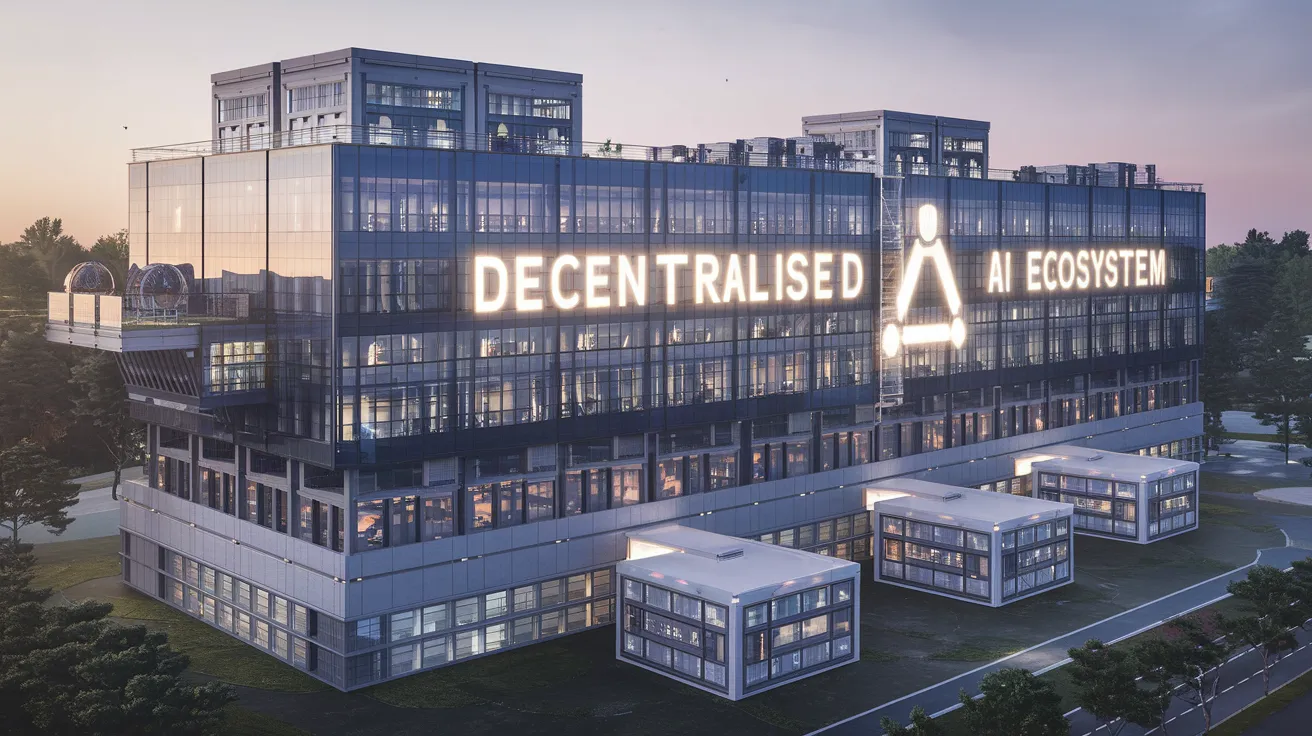Decentralised AI Ecosystem Implications

Artificial Intelligence and its associated innovations have revamped the global technological landscape. Recent data released by the US government predicts a 13% growth in IT-related opportunities over the next six years, potentially adding 667,600 new jobs to the sector. By 2034, researchers estimate that the AI sector’s cumulative valuation may reach $3.6 trillion across various industries.
The healthcare sector has already integrated AI-based diagnostic tools, with 38% of today’s major medical providers using the technology. Similarly, the financial sector anticipates AI to contribute approximately $15.7 trillion to the global economy by 2030, while the retail industry expects to gain between $400 billion and $660 billion annually from AI-driven customer experiences.
Remarkably, around 83% of companies now prioritize AI exploration as part of their agenda for sustained technical growth, given its capacity to drive innovation, enhance efficiency, and create a sustainable competitive advantage.
Decentralising AI’s Foundations
Despite its boundless potential, the rapid growth of AI presents challenges, particularly the centralization of AI development and data management. As AI systems advance, risks such as dataset manipulation, biased training models, and opaque decision-making processes could undermine their efficacy.
Diverse blockchain technology providers are actively seeking to decentralize the sector by offering innovative infrastructure frameworks that transform the development, training, and deployment of AI systems. For instance, Space and Time (SXT) has created a verifiable database designed to bridge gaps across disparate areas, providing users with transparent and secure development tools that enhance data integrity for AI transactions.
The platform’s innovation lies in its capacity to supply contextual data, allowing AI agents to execute trades and purchases with verifiable accuracy. Chromia represents another noteworthy initiative focused on building a decentralized architecture capable of supporting complex, data-intensive AI applications. Yeou Jie Goh, Head of Business Development at Chromia, emphasizes their relational blockchain, designed for AI applications capable of performing hundreds of read-write operations per transaction while indexing data in real-time.
Chromia aims to lower barriers for data scientists and machine learning engineers by offering a SQL-based relational blockchain, facilitating the construction and deployment of AI applications on decentralized infrastructures. Goh asserts, “Our mission is to position Chromia as the transparency layer of Web3, providing a robust backbone for data integrity across applications.” The platform has also formed partnerships with Elfa AI, Chasm Network, and Stork.
Establishing a Roadmap for Technological Sovereignty
The collaboration between AI and blockchain reflects more than just a passing trend; it symbolizes a comprehensive reimagining of AI’s infrastructural dynamics. For example, SXT is expanding its ecosystem across multiple domains including AI, DeFi, gaming, and decentralized physical infrastructure networks (DePIN). The strategy emphasizes onboarding developers to create a mainnet that delivers verifiable data to both smart contracts and AI agents.
Chromia has ambitious plans too, as evidenced by its $20 million Data and AI Ecosystem Fund launched earlier this year. The ‘Asgard Mainnet Upgrade’ featuring an ‘Extensions’ capability enables users to adapt their application usage effectively.
The implications of AI’s movement towards decentralization capture significant interest, particularly from industry leaders like Nate Holiday, CEO of Space and Time. He predicts that blockchain-based transactions linked to AI agents could grow from the current 3% of the market to 30% in the near future. According to Holiday, “Ushering in this inevitable future will require data infrastructure like SXT that empowers AI agents with the context necessary for verifiable trades and purchases.”
Similarly, Goh perceives this transition as not merely a technological advancement but a step towards fostering a transparent, secure, and democratized technological ecosystem. Leveraging blockchain’s intrinsic advantages—immutability, transparency, and decentralization—both Space and Time and Chromia are committed to constructing intelligent systems that are powerful, accountable, ethical, and harmonized with human values.